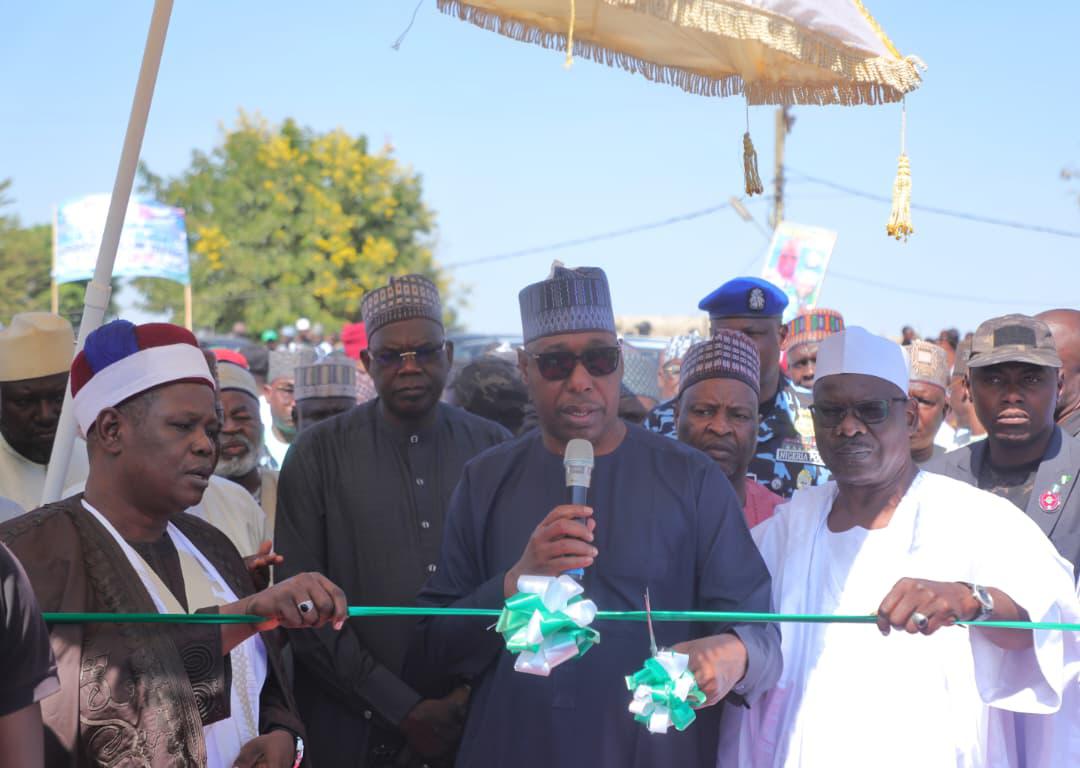The Executive Secretary of the Tertiary Education Trust Fund (TETFund), Sunny Echono, has called for stronger national support to enable the Fund deliver on its mandate of driving innovation, strengthening local capacity, and reducing Nigeria’s dependence on imported goods.
Echono made the call at the 2025 Board of Trustees Town Hall Meeting in Lagos, where he spoke on the transformative potential of TETFund’s interventions.
Echono emphasised that increased investment in research and development would yield new ideas, new products, new services, and, ultimately, more jobs for Nigerians across key sectors.
He stressed that the Fund’s commitment to technological development, especially in agriculture, would help replace crude, manual farming practices with modern, locally developed equipment and tools.
“With improved access to technology, farmers would be able to identify high-yield crop varieties, efficiently apply fertilisers, adopt better irrigation systems, and mechanise their operations,” Echono said.
This, he said, would raise productivity, increase income, and attract more people into agriculture by removing the torture associated with traditional methods.
Beyond agriculture, Echono stressed the need to curb illegal mining and channel the country’s mineral wealth into structured, Nigerian-led extractive industries.
He noted that empowering local professionals through quality tertiary education would ensure the country stops importing everything and begins refining its own resources.
He reminded that sustainable national development rests on the capacity of its people, noting that only deliberate investment in education can produce the skilled manpower required to harness Nigeria’s natural endowments.
On his part, the Chairman of the Board of Trustees, Aminu Masari, noted that the agency is driving a systemic shift from infrastructure-heavy spending to a balanced model that prioritises human capital development, research commercialisation, entrepreneurship, and digital governance in line with President Bola Tinubu’s Renewed Hope Agenda.
To tackle electricity crisis in the country’s tertiary institutions, Masari said the sum of ₦70 billion was set aside in TETFund’s 2025 budget for the deployment of mini-grid energy solutions across selected campuses.
The initiative, he explained, will reduce operational costs, improve research output, and create more conducive learning environments.
He said the agency’s investments in the research ecosystem have continued to yield tangible results, citing the TETFund Alliance for Innovative Research (TETFAIR), which has produced over 200 prototypes with commercialisation prospects, and the Research for Impact (R4i) programme, which has equipped 939 academics with skills to transform their ideas into market-ready products.
Masari revealed that the Fund is scaling up the establishment of innovation and entrepreneurship hubs equipped with robotics labs, 3D printing units, renewable energy facilities, biotechnology and Artificial Intelligence (AI) centres, among others.
Masari called for stronger collaboration among institutions, host communities, industry partners and alumni to ensure effective use and maintenance of TETFund-funded facilities.
Director General, Centre for International Advanced and Professional Studies (CIAPS), Prof Anthony Kila, in his paper at the event, explained that TETFund will only remain relevant to Nigeria’s future if it urgently transforms from an infrastructure-focused agency into a strategic engine for innovation, research commercialisation, and national competitiveness.
Kila, who spoke on, ‘Tertiary education in Nigeria and the relevance of TETFund,’, warned that Nigeria’s tertiary education system is facing an intellectual emergency.
He noted that the country currently contributes less than 0.3 per cent of global research output despite a population of over 200 million.
Kila argued that the system’s long-standing problems, inadequate funding, low research productivity, poor infrastructure, and a disconnect between education outcomes and national development priorities form the context within which TETFund must evolve.
While acknowledging the Fund’s significant achievements over the years, including thousands of new lecture halls, laboratories and libraries, lecturer training, and support for academic publishing, Kila said the Fund must now move beyond bricks and mortar.
“TETFund is still necessary, but not in its current mode,” he stated. “To stay relevant, it must shift from being an infrastructure agency to a strategic driver of knowledge, innovation and competitiveness.”
Columnist and former Chairman of The Guardian’s Editorial Board, Dr. Reuben Abati, noted that TETFund remains a critical engine of Nigeria’s higher education, supporting infrastructure, research, academic training, and institutional capacity, but it must evolve to meet 21st-century challenges.
He emphasised that without TETFund interventions, many Nigerian universities, polytechnics, and colleges would face systemic collapse, with dilapidated lecture halls, laboratories, and ICT centres, alongside sharply reduced research output and weakened lecturer capacity.






